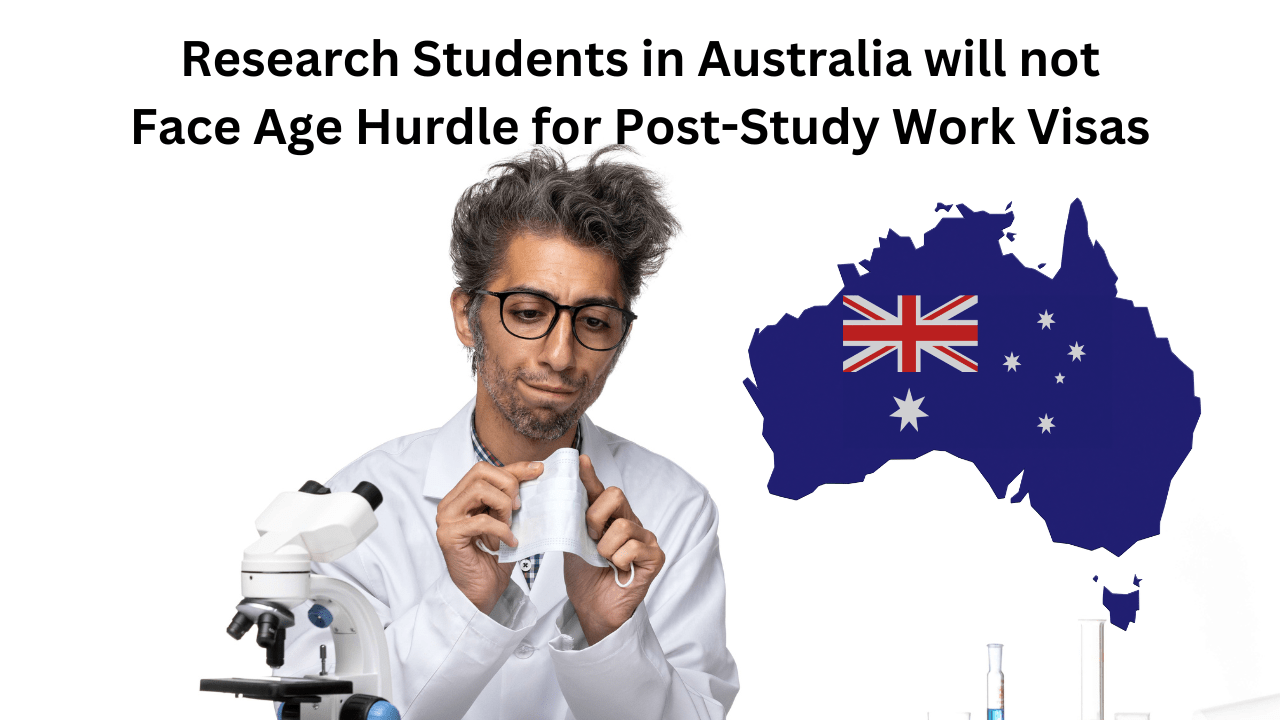
Australia recently announced a policy change regarding post-study work visas for research students. Initially, the Department of Home Affairs proposed lowering the minimum age requirement to 35 for all Temporary Graduate (Subclass 485) visa streams. This would have opened up opportunities for a wider range of graduates. However, after considering feedback on the potential impact, the department has decided to maintain the existing age requirement of 50 specifically for research doctorates and Masters by research graduates.
This decision has sparked debate within the international education sector. Proponents of the lower age limit argue that it would attract more experienced researchers to Australia, fostering collaboration and innovation. They believe that Australia’s research sector would benefit from the expertise and experience that older researchers bring.
On the other hand, those who support the current system argue that it ensures recent graduates have priority access to these work visas. They express concern that an influx of older researchers could limit job opportunities for younger graduates just entering the workforce.
The Australian government faces a challenge in balancing these competing interests. While attracting and retaining skilled researchers is crucial for a thriving research sector, supporting the career prospects of recent graduates is equally important. The debate surrounding the age requirement for post-study work visas in Australia is likely to continue as the government seeks to find an approach that benefits both researchers and recent graduates.
